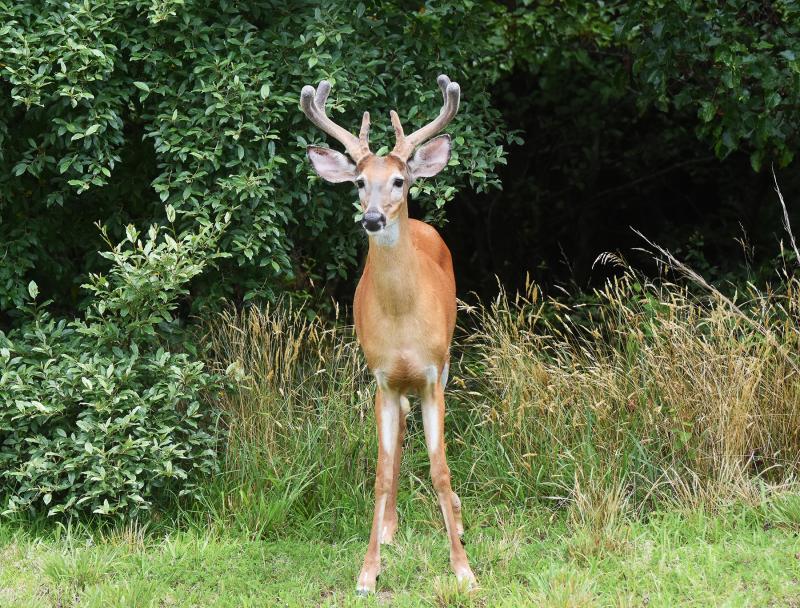Deer in Rehoboth tests positive for rabies
The Delaware Division of Public Health is advising Rehoboth Beach-area residents who live or spend time in the vicinity of Kings Creek Circle and Road 273 (Country Club Road) of a positive case of rabies in a white-tailed deer in the area. The deer was showing signs of symptoms and was removed from a residential property Sept. 1. It was then tested for rabies, which yielded positive results Sept. 8.
Anyone who thinks they may have been bitten, scratched or come in physical contact with a white-tailed deer in this area should immediately contact their healthcare provider or call the DPH Rabies Program at 302-744-4995. An epidemiologist is available 24/7.
Although rabies is very infrequently found in white-tailed deer, with Delaware’s deer-hunting season having begun Sept. 1, the Department of Natural Resources and Environmental Control recommends the following for anyone hunting in the area where the rabid deer was found:
- Minimize handling and do not consume any deer that was acting abnormal or appeared to be sick when harvested
- Always wear latex or rubber gloves when field-dressing deer
- Minimize handling of the deer’s brain and spinal cord
- Do not allow pets around the field-dressing area to prevent contact with deer blood and other tissues
- Wash hands, boots and knives thoroughly after finishing field-dressing a deer
- If you harvest a deer and have it commercially processed, request that your venison is processed individually
- Properly cook and prepare your venison.
Rabies is a preventable disease. DPH recommends that individuals take the following steps to prevent rabies exposure:
- All dogs, cats and ferrets 6 months of age and older are required by Delaware law to be vaccinated against rabies by a licensed veterinarian
- Pet owners can reduce the chance of rabies exposure by keeping animals, especially cats, indoors, not letting them roam free
- Do not touch or otherwise handle wild or unfamiliar animals, including cats and dogs, even if they appear friendly
- Do not keep pet food or water outdoors; bowls can attract wild and stray animals
- Do not feed feral animals, including cats, as the risk of rabies in wildlife is significant
- Spaying or neutering pets may reduce the tendency to roam or fight and thus reduce the chance they will be exposed to rabies
- Keep garbage containers securely covered
- Consider vaccinating livestock and horses as well
- Consult with your private veterinarian if you have any questions regarding whether your animal should be vaccinated against rabies.
Rabies is an infectious disease affecting the nervous system of humans and other mammals. Infection can occur through the bite or scratch of an infected animal, or if saliva from such an animal gets into the eyes, nose, mouth or an opening in the skin. Rabies in humans and animals cannot be cured once symptoms appear. Therefore, if a human has been exposed, and the animal is unavailable to be quarantined or tested, DPH recommends that people receive post-exposure prophylaxis treatment, a series of four vaccinations, as a precautionary measure.
Anyone who encounters a wild animal behaving aggressively should contact the DNREC Wildlife Section at 302-739-9912 or 302-735-3600. Staff will determine whether it is more appropriate to refer callers to a private nuisance wildlife control operator. A listing of nuisance wildlife control operators can be found at wildlifehelp.org. Calls after hours and on weekends can be made to the 24-hour dispatch number at 800-523-3336. Anyone who encounters a stray or feral domestic animal, such as a cat or dog, behaving aggressively, should contact the Office of Animal Welfare at 302-255-4646.
For more information on the DPH rabies program, go to dhss.delaware.gov/dhss/dph/dpc/rabies.html or call 1-866-972-9705 or 302-744-4995. For more information on rabies, go to the Centers for Disease Control and Prevention at cdc.gov/rabies.




















































